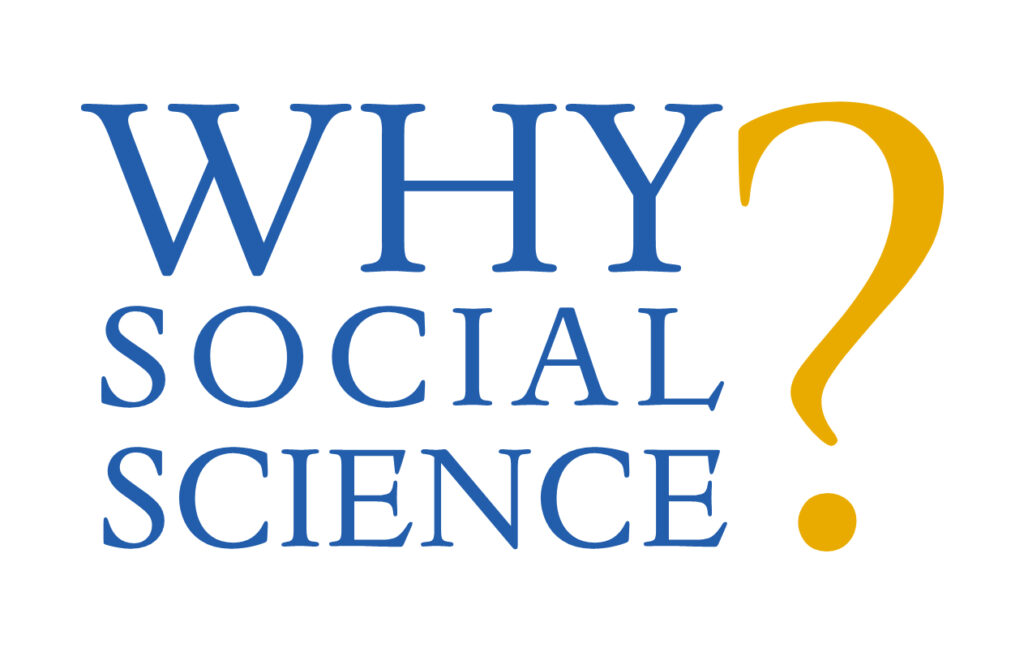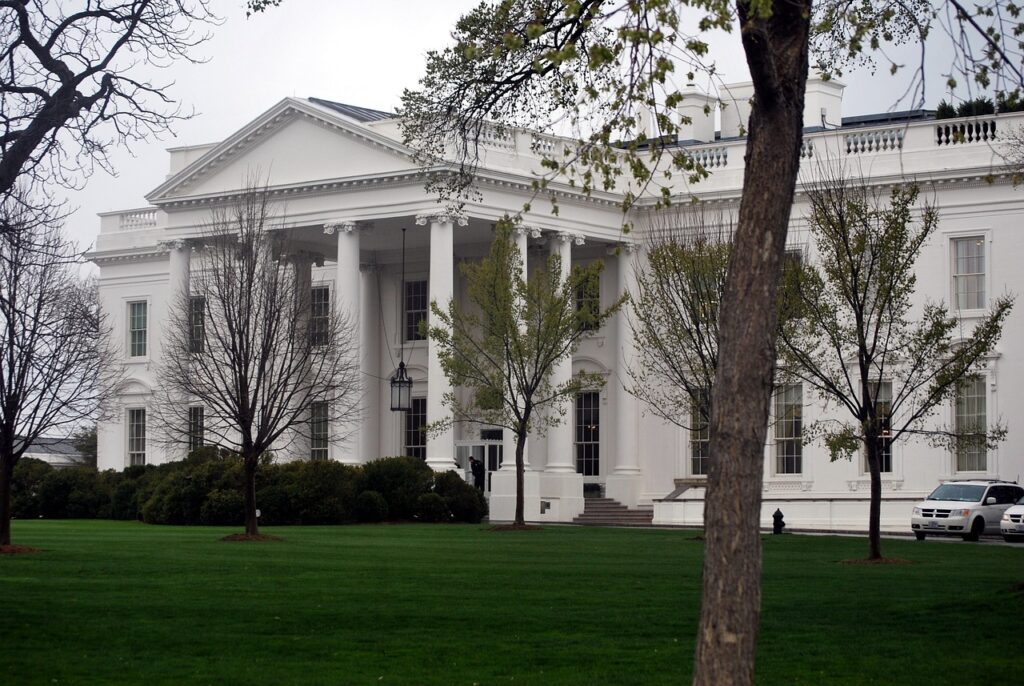Volume 42 (2023)
Advocacy Day Spotlight: Early Bird Registration is OPEN!
Early bird registration for COSSA’s tenth annual Social Science Advocacy Day is officially OPEN! The event will be taking place April 8-9, 2024 in Washington, DC. Register here. Don’t miss this opportunity to have an impact on funding and policy important to the social science community. “I will come back every year if my university allows,” said a past Social Science Advocacy Day participant. “It’s one of the highlights of my academic career. Makes me think differently about my work and want to get into politics.” Social Science Advocacy Day is open to anyone affiliated with a COSSA member organization or university. Not a member?…
As Congress Prepares for Holiday Recess, FY24 Budget Remains Uncertain
As the year comes to an end, Congress remains no closer to finding a resolution to the fiscal year (FY) 2024 appropriations process. As previously reported by COSSA, Congress passed a continuing resolution (CR) to extend the appropriations deadline to after the new year. Early last week, Senate Majority Leader Charles E. Schumer (D-NY) and Appropriations Chair Patty Murray (D-WA) unveiled a supplemental funding bill that would provide $110.5 billion of economic and humanitarian aid to Israel and Ukraine, Taiwan and Indo-Pacific allies and funding to combat fentanyl trafficking and process migrants crossing the U.S. southern border. The bill was halted…
House Passes Deterrent Act Aimed to Tighten Foreign Financial Contribution Regulations
The House of Representatives recently passed the Defending Education Transparency and Ending Rogue Regimes Engaging in Nefarious Transactions (DETERRENT) Act. This legislation aims to tighten regulations on foreign financial contributions to American universities and academics. The act reflects growing concerns about foreign influence in American higher education and research sectors. One of the act’s central features is the reduction of the reporting threshold for foreign funding. Previously set at $250,000, the threshold would now be $50,000 for most countries, with a zero threshold for nations deemed as “countries of concern,” including China and Iran. This change aims to increase transparency…
OBSSR Hosts Behavioral and Social Sciences Research Festival
On December 5, the National Institutes of Health’s (NIH) Office of Behavioral and Social Sciences Research (OBSSR) held their annual Behavioral and Social Sciences Research Festival. The festival highlighted various research areas supported by the office and the full agenda can be found here. In her opening remarks, newly appointed OBBSR Director Jane Simoni identified the office’s scientific interests for 2024, including theory-informed research on behavior change and mechanisms of impact, social connection and health, multi-level research, health communication science, and the integration of BSSR into biomedical research (see previous COSSA coverage). The recording of the festival is expected to be published here within…
NSF Announces EducateAI for Nationwide AI Education
The National Science Foundation (NSF) launched EducateAI, an initiative aimed at enhancing artificial intelligence (AI) education across the United States. This program targets a broad audience, from K-12 to graduate students and adults seeking formal AI training. The initiative’s core objective is to empower educators and students with essential AI knowledge and skills, fostering an inclusive environment for learning about AI technology. The initiative’s first step involves publishing the EducateAI Dear Colleague Letter, calling for proposals that advance inclusive computing education and integrate innovative AI-focused curricula. Funded by NSF’s CISE and STEM Education directorates, the call for proposals seeks to develop comprehensive…
OSTP Investigates the Costs of Open Access Publishing
On November 22, the White House Office of Science and Technology Policy (OSTP) published a report exploring the impact for covering the cost of openly publishing federally-funded research. The report outlines multiple challenges endured by federal grantees and intramural researchers, but estimates that in 2021 the cost was roughly $378 million. Congress requested the report through its appropriations legislation for fiscal year (FY) 2023, citing concerns that some open access publishing financing mechanisms, particularly total article processing fees (APCs) and transformative agreements, may “present growing barriers to knowledge generation and sharing.” Congress asked OSTP to estimate how much of the costs of both APCs and transformative agreements…
CALL FOR EXPERTS: Communications Advisory Group for the National Academy of Medicine
The National Academy of Medicine (NAM) announced that they will be appointing a Communications Advisory Group to inform the direction of its communications and engagement activities. The group will be comprised of 15 volunteers to serve 2-year terms, beginning in January 2024. NAM is looking for a mix of experts with a particular interest in the following: Learn more about the group and submit nominations for members by December 15 here.
APA Releases Report on Countering Misinformation
The American Psychological Association (APA) released a comprehensive report addressing the challenges of misinformation, particularly in the realm of health, well-being, and civic life. Providing eight recommendations for a collaborative effort between scientists, policymakers, media professionals, and the public to combat the spread and impact of misinformation: APA is a COSSA governing member. To read the full report, visit here.
Sage Publishing Launches Sage Policy Profiles Tool
Sage Publishing has officially launched their new tool, in partnership with Overton, titled “Sage Policy Profiles“. The tool is free-to-use and enables individual researchers and academics to easily discover how their work is impacting policy. Additional functionalities of the tool include: Sage is a COSSA affiliate member. Learn more about the tool here.
Editor’s Note: Update Returning on January 9
This is our final issue of the COSSA Washington Update for 2023. Late-breaking news and analysis will be shared with members subscribed to our members-only emails. We will resume our ongoing coverage of policy developments affecting the social and behavioral sciences on January 9. The COSSA team wishes all our readers a happy and healthy holiday season.
Analysis of the FY 2024 House Appropriations Bills for Federal Science Agencies
In late October, details of the U.S. House of Representatives’ fiscal year (FY) 2024 appropriations bills were made public. Before leaving town for the Thanksgiving break, the House—under the leadership of newly-elected House Speaker Mike Johnson (R-LA)—took initial steps toward passing the bills. However, despite two days of debate, the Labor, Health and Human Services, Education (LHHS) appropriations bill—the measure that funds the National Institutes of Health, Department of Education, and several other agencies of interest to the science community—did not receive a final vote and consideration was punted until after the holiday. The other bill of interest—the Commerce, Justice, Science (CJS)…
Advocacy Day Spotlight: Early Bird Registration Coming Soon
Early bird registration for COSSA’s tenth annual Social Science Advocacy Day will be opening soon! The event will be taking place April 8-9, 2024 in Washington, DC. Be sure to save the date, share with your colleagues, and keep an eye on your inbox for the latest details. If your organization is interested in becoming a sponsor of Social Science Advocacy Day, learn more here. Visit the COSSA website for the latest information on Social Science Advocacy Day.
NSF Signs Memorandum of Understanding with the Social Sciences and Humanities Research Council of Canada
On November 14, Dr. Sethuraman Panchanathan, Director of the National Science Foundation (NSF), signed a Memorandum of Understanding (MOU) with the Social Sciences and Humanities Research Council of Canada (SSHRC). The agreement is intended to foster a collaborative research partnership between the United States and Canada on various subjects including artificial intelligence (AI), healthcare, climate change, and more, through building on current projects and developing new opportunities. Some of these current projects include the NSF-led Global Centers, the NSERC-NSF AI/Quantum Lead Agency Opportunity, and the Canadian-led New Frontiers in Research Fund. Stay tuned to COSSA for continued coverage.
Biden Administration Appoints New NCI Director
On November 17, the Biden Administration announced intent to appoint Dr. W. Kimryn Rathmell as Director of the National Cancer Institute (NCI). The position was previously held by Dr. Monica Bertagnolli, the recently confirmed Director of the National Institutes of Health (NIH) (see previous COSSA coverage). Dr. Rathmell currently serves as the Physician-in-Chief and Chair of the Department of Medicine at the Vanderbilt University Medical Center. She received her PhD in biophysics and her M.D. from Stanford University following a Bachelor of Science in biology and chemistry from the University of Iowa. Dr. Rathmell also served as an internal medicine resident, fellow…
OSTP to Address Climate Change and Environmental Injustice as Social Determinants of Health
The White House Office of Science and Technology Policy (OSTP) released The U.S. Playbook to Address Social Determinants of Health (SDOH) to address social and environmental impacts on public health. The Biden Administration recognizes that addressing public health needs requires a multidisciplinary approach and has expressed their commitment to doing so. SDOH addresses important issues such as housing and food security, education access, and a healthy environment. It recognizes three pillars as a starting point for addressing these topics, including improving data collection in health care, public health, social care services, and other data systems, providing funding to address social needs, and…
White House Announces Initiative on Women’s Health Research
On November 13, the White House and First Lady Dr. Jill Biden announced a new initiative to advance women’s health research, recognizing gaps in funding for this research as a barrier to accessible healthcare for women. The Initiative on Women’s Health Research will be led by Dr. Biden and newly appointed Chair Dr. Carolyn Mazure, a previous National Institutes of Health (NIH) fellow and researcher at Yale University. Dr. Biden highlighted the importance of the new initiative, stating that “there’s just not enough research yet on how to best manage and treat even common women’s health conditions…Our new White House Initiative on…
NEW ACTION ALERT: Tell Congress to Reject Cuts to Science Funding in FY 2024!
The U.S. House of Representatives is voting this week on fiscal year (FY) 2024 appropriations bills that fund social and behavioral science research. The bills in the House propose massive cuts to discretionary spending, including for research. Write to your members of Congress TODAY and urge them to reject these proposals. For more details, follow COSSA’s FY 2024 coverage here. Visit COSSA’s TAKE ACTION page to send a quick message to your Senators and Representatives and tell them why they must reject cuts to science funding in FY 2024.
SAVE THE DATE: COSSA’s 2024 Social Science Advocacy Day is April 8-9
COSSA’s tenth annual Social Science Advocacy Day will be taking place on April 8-9, 2024 in Washington, DC! Our signature, members-only event will bring together social and behavioral science researchers, faculty, students, association professionals, and other advocates from across the country to meet with their elected officials in Congress to discuss the value of our sciences and the importance of federal funding. Stay tuned for additional details, early bird registration will be opening in a few weeks! Until then, save the date and share this exciting opportunity with your colleagues. We hope to see you in Washington, DC in April 2024!
House Unveils Potential Stopgap Measure and Continues Appropriations Process
On November 11, House Speaker Mike Johnson (R-LA) unveiled a potential stopgap funding deal that would extend the current continuing resolution (CR) beyond the current November 17 deadline. The Speaker’s proposal includes “tiered deadlines;” some bills would be extended to mid-January and others to early February (see previous COSSA coverage). Under the draft bill, agencies within the Military Construction-VA, Agriculture, Energy-Water and Transportation-HUD bills would receive an extension to January 19 while all remaining bills – including those that fund the National Science Foundation and National Institutes of Health – would be extended to February 2. The bill would also include a…








